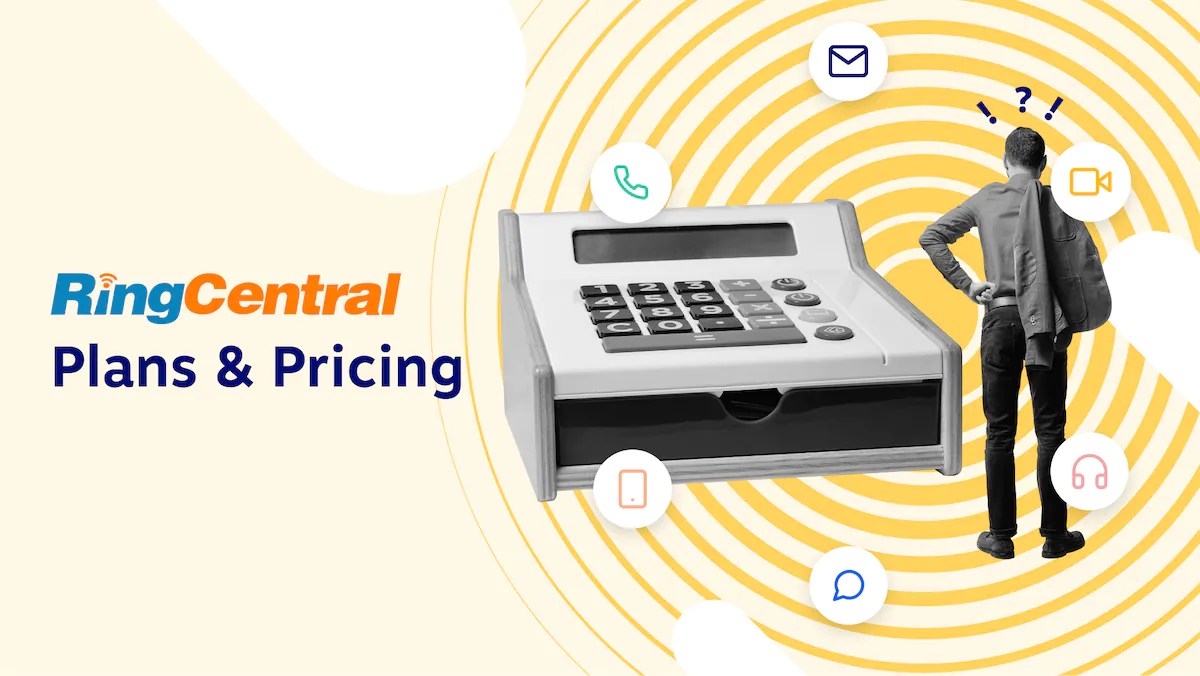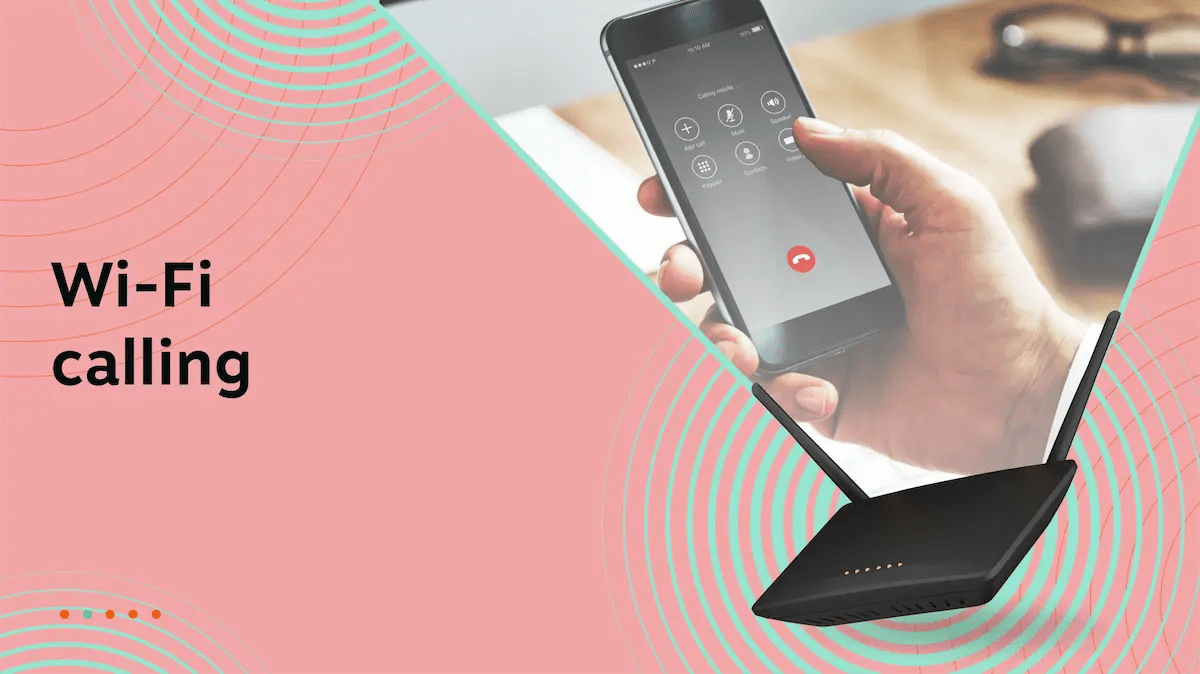For decades, traditional landline phones relied on circuit-switched networks to make calls. But in recent years, Internet Protocol (IP) telephony has taken over voice communications.
By transmitting voice conversations over data networks rather than traditional phone lines, IP telephony systems enable unified communications that integrate voice, video, messaging, fax, conferencing, and more at a much lower cost.
The global IP phone market is valued at over $20 billion and is expected to grow steadily in the coming years. Businesses need to step up and use this emerging tech to their advantage.
To get you up to speed, we’ll discuss what IP telephony is, how it works, and how you can use it to improve customer communications.
What Is IP Telephony?
IP telephony (Internet Protocol Telephony) refers to any phone system that uses an internet connection to send and receive voice data.

Unlike a regular telephone that uses landlines to transmit analog signals, IP phones connect to the internet via a router and modem.
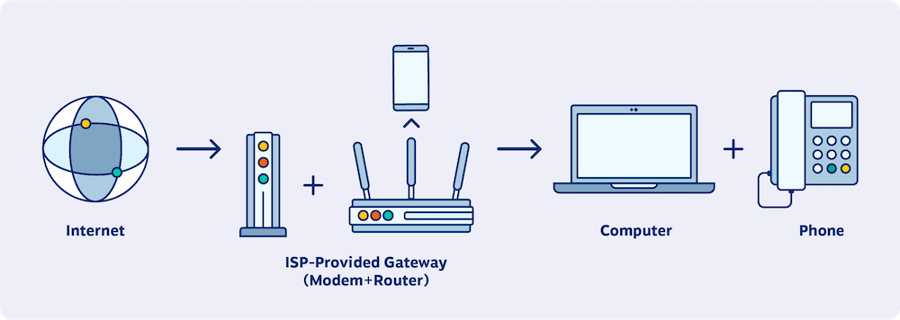
The first publicly available IP phone arrived on the market as early as 1995. But, compared to a standard phone system, it had low audio quality and was prohibitively expensive.
Since then, internet-based phone technology has improved by leaps and bounds. IP telephony now offers HD voice quality, cheaper running costs, and advanced business phone features.
And the need for up-front investment is next to nothing.
IP telephony doesn’t stop at voice calls. Here are some more of its use cases.
- Video calling
- Audio and video conferencing
- Text messaging
- Instant messaging
- Faxing
How Does IP Telephony Work?
IP telephone systems use the Internet Protocol — the fundamental data communication protocol of the Internet and modern networks — or other digital protocols to transfer voice communications over the internet.
IP telephony digitizes analog voice signals into data packets that are then transmitted using the Internet Protocol. As data packets traverse networks, they encounter devices such as routers that read packet headers and forward them to their destinations.
The major protocols that enable IP telephony include SIP (Session Initiation Protocol) for signaling and call session management, RTP(Real-Time Transport Protocol)/RTCP (Real-Time Transport Control Protocol) for transmitting voice media streams, and H.323 (call control and signaling protocol), an early VoIP protocol.
When packets complete their journey, the software reassembles them in the correct order to reconstruct the voice stream.
If you use an IP PBX system, the data is transferred digitally on a Local Area Network (LAN), and then transformed to analog voice signals and sent to the Public Switched Telephone Network (PSTN).
However, because of high hardware and installation costs, IP PBX is no longer the leading solution.
Hosted VoIP has become the most popular IP telephony solution. It lets businesses take advantage of advanced PBX features without hardware installed on-site.
Here’s a breakdown of how the VoIP system works:
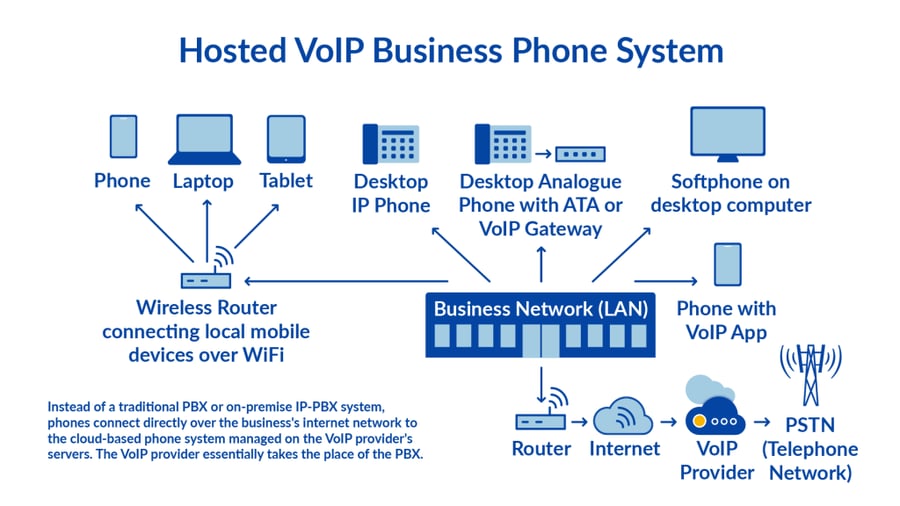
With hosted VoIP, your IP phone sends data (in the form of digital signals) over the internet to your provider. Your provider handles the routing of calls, call queues, and everything else in the cloud.
You can also use SIP trunking to connect a legacy IP PBX to a modern VoIP provider to take advantage of missing features.
IP Telephony vs. VoIP
IP and VoIP telephony are often used interchangeably, but there’s a subtle difference between them.
IP telephony is a broader term that covers any telecommunications system using the Internet Protocol to transmit voice and data. This includes traditional phone systems that have been upgraded to use IP, as well as newer VoIP systems.
Voice over IP (VoIP), on the other hand, is a specific technology that uses IP to transmit voice calls. It’s a subset of IP telephony that specifically deals with the transmission of voice traffic.
In other words, all VoIP systems are IP telephony systems, but not all IP telephony systems are VoIP systems.
The term VoIP was initially more specific. It only referred to the technology used to make and receive phone calls over the internet.
In recent years, though, even VoIP providers and telecommunications companies have started to use these terms interchangeably. IP telephony and VoIP technology both cover phone systems that use a LAN (local area network) to connect to the internet via a modem/router.

Key Components of IP Telephony Systems
IP telephony systems comprise several key components that work together to facilitate voice communications over IP networks. These include:
- IP PBX: The IP PBX, or Private Branch Exchange, serves as the central switching and control unit for the IP telephony system. It manages call routing, voicemail, and other features.
- Softphones: Softphones are software-based alternatives to traditional hardware phones. They run on computers or mobile devices and allow users to make and receive calls directly from their devices.
- VoIP Gateways: VoIP gateways connect IP telephony systems to the PSTN, enabling calls to be made to and from traditional phone numbers.
- Session Border Controllers (SBCs): SBCs act as gatekeepers for IP telephony traffic, providing security and management functions. They ensure that only authorized users can access the network and protect against unauthorized access and attacks.
- Network Infrastructure: A robust and reliable network infrastructure is essential for supporting IP telephony. This includes high-speed network connections, adequate bandwidth, and proper network configuration.
Protocols play the most important role in IP telephony. Which protocols IP telephony uses depends on how your phone system is set up and your VoIP provider.
To effectively send voice data over the internet, you need a way to compress and decompress it. Because phones stream data in real-time and the focus is on human voices, they can’t use general codecs like MP3.
Most IP telephony service providers, including Nextiva, use the specialized G.711μ codec — the same as the new digitized PSTN.
Benefits of IP Telephony
More software buyers go with VoIP phones than any other type of voice service.
Why are so many businesses making the switch?
1. Reduced costs
VoIP is significantly cheaper than traditional business plans. Switching to an unlimited VoIP plan can save you up to 50% over a comparable business landline plan.

Nextiva Core, for instance, starts at $30/month per user and includes unlimited calling for the US and Canada.
Consolidating voice and data networks saves businesses long-distance and international call charges.
2. More features without extra hardware
IP telephony offers access to advanced features like advanced call routing, call recording, instant messaging, and video conferencing without having to invest in extra hardware.
Nextiva lets you choose advanced enterprise plans that include all key VoIP features. Businesses can also upgrade and enrich their plans with different add-ons or add more users as they grow. This makes IP telephony highly scalable.

3. Increased accessibility
With IP telephony you can make and receive calls from anywhere in the world as long as you have an internet connection.
Users can make and receive calls from their computers, mobile phones, or any device with a softphone or VoIP app installed. This mobility is particularly valuable for businesses with remote or mobile employees.
4. Unified communications
VoIP also makes it a lot easier to integrate voice communications with your CRM and other business tools.
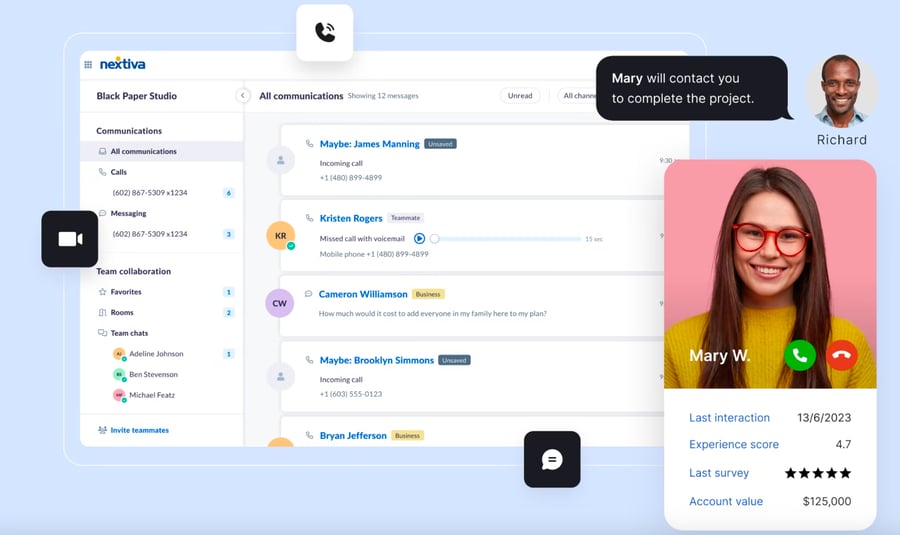
Centralizing data and providing consistent customer service across multiple channels (at a lower pricing) makes IP telephony and VoIP a no-brainer for many businesses.
Challenges With IP Telephony
Quality of Service (QoS): VoIP calls can be susceptible to network jitter and latency. This can lead to choppy audio, dropped calls, and other issues. Make sure you have sufficient bandwidth and a reliable internet connection to support VoIP.
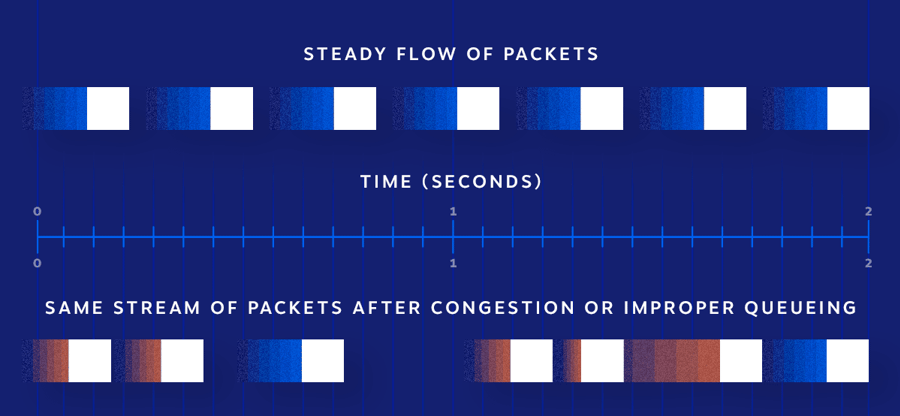
Security: VoIP calls can be intercepted and eavesdropped on if not properly secured. Implement encryption and authentication measures to protect your calls.
Compatibility: VoIP systems may not be compatible with all existing telephone devices. Investing in the right VoIP phone service that can connect your existing systems via SIP trunks is key to switching to IP telephony.
Reliability: VoIP systems rely on the internet. VoIP calls may be interrupted by power outages or other internet outages. Make sure to have a backup plan in place if the VoIP system fails.
Although IP telephony can present its own challenges, you can easily get around the common issues. It all starts with choosing a VoIP service that understands your needs, has a reliable and scalable system, and offers excellent technical support.
Move your phone system to the cloud. On your terms.
Upgrade your company's office communications using Nextiva's battle-tested IP telephony network. Trusted by 100K+ brands.
Save Big on Monthly Bills by Switching To VoIP
Want significant cost savings and a new and more multi-line phone system with advanced PBX features?
Nextiva offers tailored solutions to businesses of all sizes. Our small business VoIP plans start at $20/month per user and go up to $60/month per user for companies that require unified communications and more advanced features.
Our Amazing Service Team will be with you every step of the way and ensure that the switch to VoIP is seamless.

Ready to make the switch to IP telephony? Speak to a Nextiva expert for an all-in communications solution.
Related: What Is Digital Telephony? Is It Right for Your Business?

















 VoIP
VoIP 







